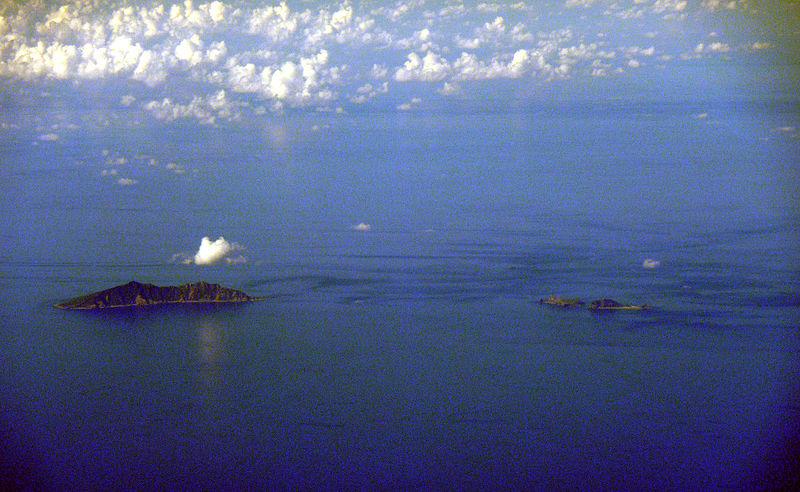China has raised the stakes — and the risk of accidental conflict — in the East China Sea
Some the islets disputed by China and Japan.
Vice President Joe Biden stood shoulder to shoulder with Japanese Prime Minister Shinzo Abe in Tokyo on Tuesday and said the United States will stand by its treaty obligations to defend Japan.
"The world should not forget," Biden said, "that our alliances have been critical to the stability that has made this region's remarkable progress possible. I told the prime minister that we will remain steadfast in our alliance commitments."
He responded to China's weekend declaration of an air defense identification zone over the disputed islands know as the Senkaku in Japan and the Diaoyu in China.
"We, the United States, are deeply concerned by the attempt to unilaterally change the status quo in the East China Sea," Biden said. "This action has raised regional tensions and increased the risk of accidents and miscalculation. My father had an expression. He said the only conflict that is worse than one that is intended, is one that is unintended. The prospect for miscalculation and mistake is too high."
The vice president said the US is keen to lower tensions in the region. Biden is heading to Beijing later this week.
Retired US Navy Admiral Mike McDevitt says the vice president is "absolutely correct" about the dangers of the current situation. McDevitt used to command a carrier battle group. He's also written extensively on China's push for influence in the seas around Asia as a senior analyst with the Center for Naval Analyses at CNA, a non-profit research organization in Alexandria, Va.
"The possibility of an accident is very high. Or a misjudgment," he says. "China's [new] air defense information zone overlaps almost identically with Japan's. That means you could potentially have Japanese F-15s launched to identify an airplane coming from China, and China, in turn, could launch its own interceptors to go up to intercept the Japanese."
China is demonstrating a high tolerance for risk by declaring this air defense zone, McDevitt says.
"To a degree, it's like throwing gasoline on a fire," he adds. The situation over these islands is complicated enough. "To layer this on top is not very helpful." But McDevitt stresses he is only "moderately worried."
"I think the command and control in Japan and China is such that people will be very responsible in making sure an accident doesn't happen. But accidents by definition are things that nobody planned to have take place, so you can't rule them out," he says.
McDevitt is one of the few people to have seen these remote, uninhabited islands. He recalls steaming past them many, many years ago. And not giving them much thought.
